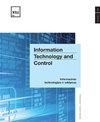基于权重系数的车载数据传输自适应联合学习
IF 2
4区 计算机科学
Q3 AUTOMATION & CONTROL SYSTEMS
引用次数: 0
摘要
随着车辆数据量的不断增加,将这些数据收集并传输到数据处理中心需要消耗大量的通信资源。压缩和传输车辆数据的传统方法无法有效解决高效利用这些数据的问题。为了克服这一挑战,我们提出了一种自适应联合学习方法,该方法无需按车辆传输数据。我们的方法利用车辆作为分布式训练设备节点,利用车辆自身的计算能力对车辆数据进行训练,从而无需通过网络传输数据。为了进一步提高联合学习聚合计算的效率,我们引入了信息熵函数和余弦相似度计算。通过计算模型与基准模型之间的相似度,我们能够赋予新一轮模型聚合计算权重。最后,我们使用实际的 MNIST 数据集对所提出的算法进行了验证,证明了该算法的高效性。本文章由计算机程序翻译,如有差异,请以英文原文为准。
Weight Coefficient Based Adaptive Federated Learning for Vehicular Data Transmission
With the ever-increasing amount of vehicle data being generated, the collection and transmission of this data-to-data processing centers is consuming significant amounts of communication resources. The traditional method of compressing and transmitting the vehicle data is not effective in addressing the issue of efficient utilization of this data. In order to overcome this challenge, we propose an adaptive federated learning approach that avoids the need for transmitting data per vehicle. Our approach leverages the vehicle as a distributed training device node and enables the training of vehicle data using the vehicle's own computing power, thereby eliminating the need to transmit the data over the network. To further enhance the efficiency of the federated learning aggregation calculation, we introduce the information entropy function and cosine similarity calculation. By computing the similarity between the model and the benchmark model, we are able to give a new round of model aggregation calculation weight. Finally, we validate the proposed algorithm using the actual MNIST dataset, demonstrating its high effectiveness.
求助全文
通过发布文献求助,成功后即可免费获取论文全文。
去求助
来源期刊

Information Technology and Control
工程技术-计算机:人工智能
CiteScore
2.70
自引率
9.10%
发文量
36
审稿时长
12 months
期刊介绍:
Periodical journal covers a wide field of computer science and control systems related problems including:
-Software and hardware engineering;
-Management systems engineering;
-Information systems and databases;
-Embedded systems;
-Physical systems modelling and application;
-Computer networks and cloud computing;
-Data visualization;
-Human-computer interface;
-Computer graphics, visual analytics, and multimedia systems.
 求助内容:
求助内容: 应助结果提醒方式:
应助结果提醒方式:


